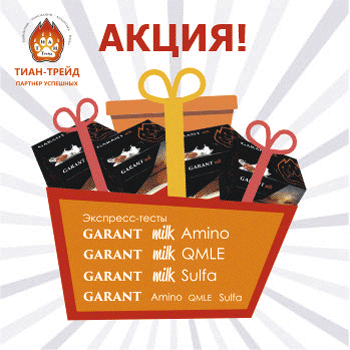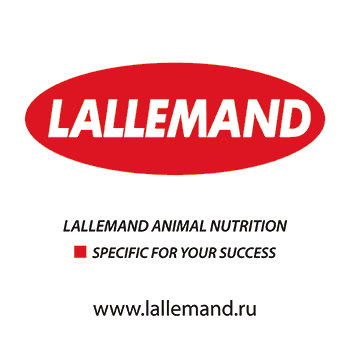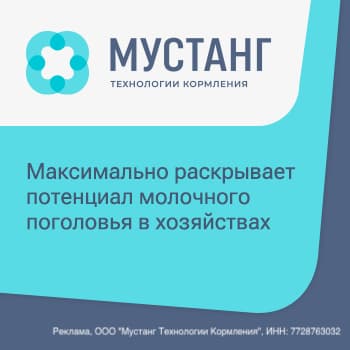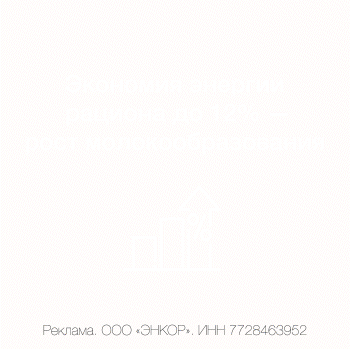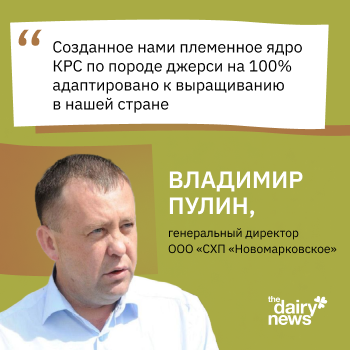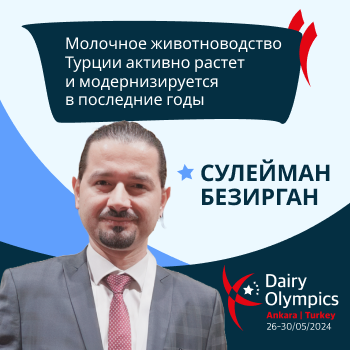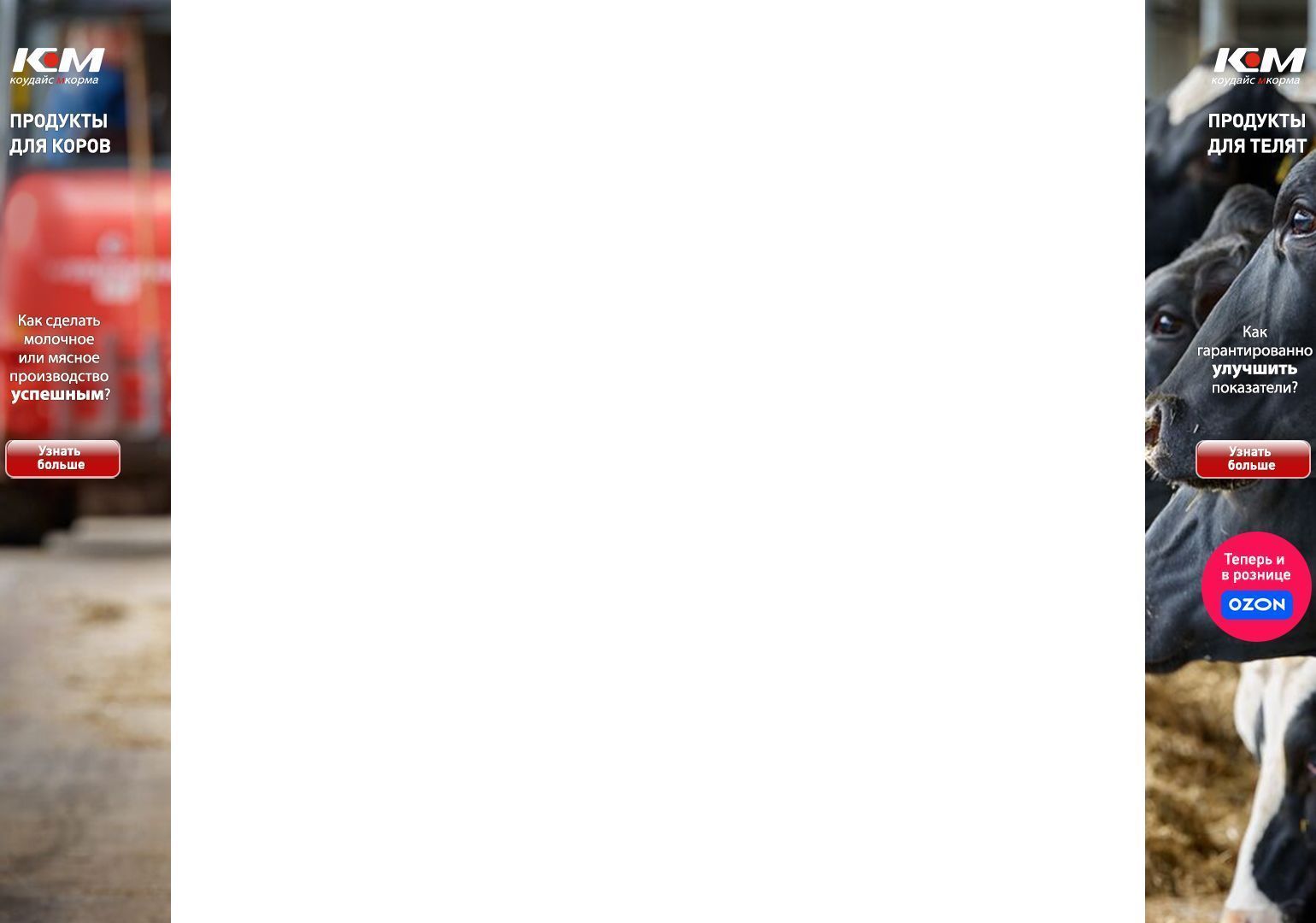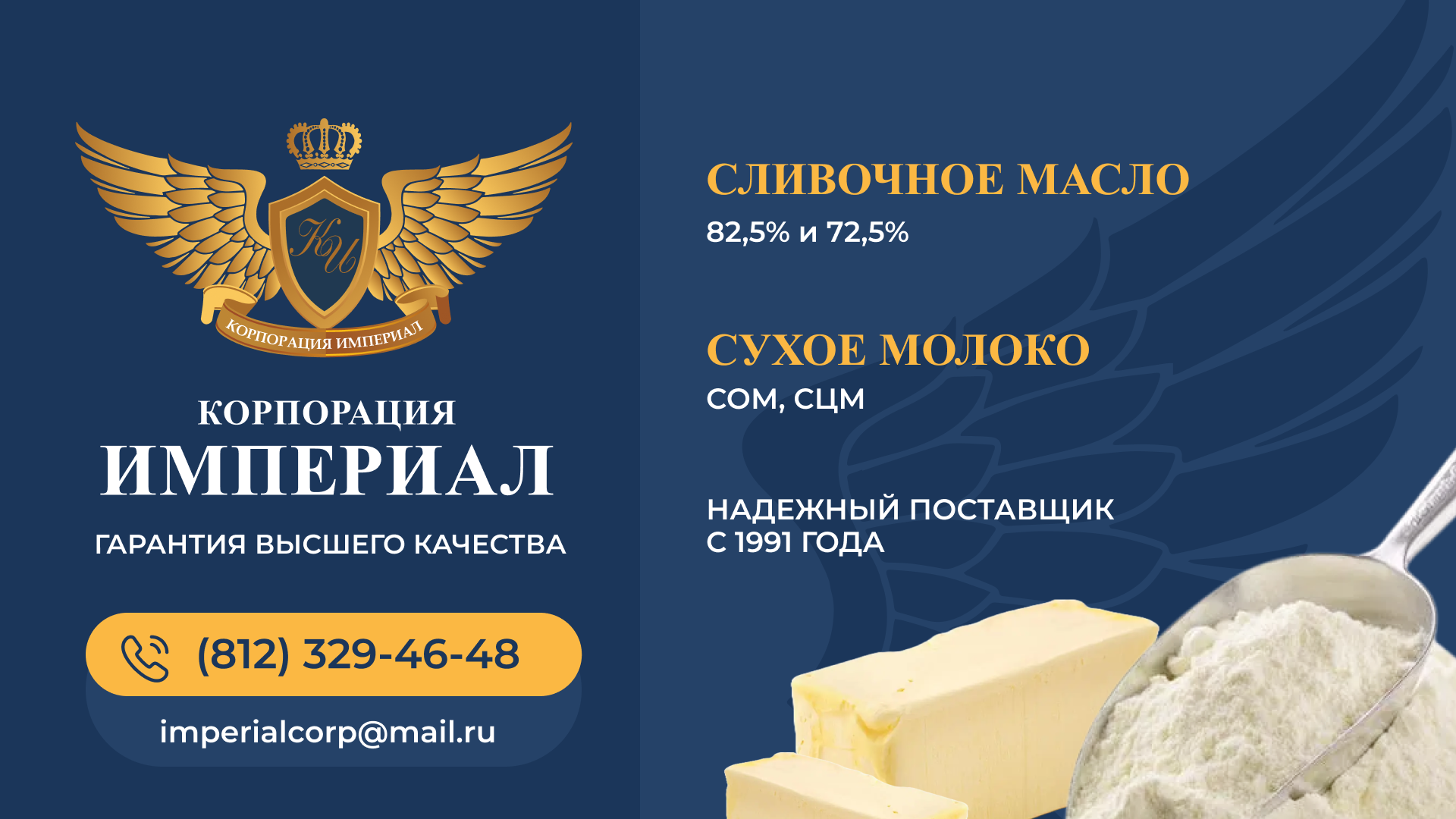Truth in milk
Источник: The DairyNews
Dairy disputes between the Rosselkhoznadzor and Ministry of agriculture and food of Belarus can obtain a new round of confrontation with the adoption by the Eurasian economic Commission the list of standards to technical regulations "On safety of milk and dairy products". The EEC assures that the document is accepted under the regulations.
The decision of the EEC Board of 7 November 2017 approved the actualized lists of standards to TR CU 033/2013 "On safety of milk and dairy products". The text of the document can be found on the website of the Eurasian Economic Commission. The decision takes effect in 30 days from the date of publication on November 13. According to some experts, the new list violates the Antimonopoly legislation of the Russian Federation, in fact, on a number of points defending the interests of specific producers. Is that really so?
As reported by the Dairy Union of Russia (the Russian Union of dairy industry enterprises), the techniques, approved by the Belarusian side, lobby the interests of certain foreign manufacturers and carry the risk of creating intractable issues in the control of circulation of products.
"The EEC did not accept the arguments of the Russian side and the Expert Committee for standardization MTK 532, it did not consider to be valid the concern about possible errors in the control in the circulation of regulated indicators of safety and microbiology (antibiotics, presence of yeast, mold, and so on) with such "narrowly specific" measurement procedures; the EEC found it possible to take into account the proposals of the Republic of Belarus and supporting states. We believe that measurement procedures included in the Lists will create a lot of unsolvable issues in the control of circulation, as these methods did not pass scientific and technical expertise," said in the Dairy Union of Russia.
The EEC noted that the mentioned techniques of measurement procedures are certified and approved in accordance with the legislation of the Republic of Belarus.
"The proposal of the Republic of Belarus has been repeatedly discussed at the Commission with the participation of representatives of state authorities and the business community of the states -members of the Eurasian economic Union. Taking into account that Belarus has not joined so far the international standards developed in 2014-2015 and included in the Lists of standards, it was decided to include measurement procedures in the lists of standards limiting the period of their application until 1 July 2019," - said in the press service of the EEC.
The Commission representatives also reported that in accordance with paragraph 4 of the Protocol on technical regulation within the Eurasian economic Union, prior to the development of relevant international standards in the lists of standards there may be included methods of researches (tests) and measurements, certified (validated), and approved in accordance with the legislation of the member state.
Union state Secretary Grigory Rapota earlier noted that "he considers it appropriate that independent laboratory could solve the disputes of Belarusian manufacturers with the Rosselkhoznadzor".
Previously, the Rosselkhoznadzor has repeatedly introduced and removed restrictions on the supply, and establishes the regime of enhanced laboratory control in respect of products of several Belarusian enterprises. For example, in early July, the Agency reported that it may limit the import of meat and dairy products from several Belarusian enterprises due to repeated violations. Later there have been also repeatedly withdrawn and introduced restrictions on supplies of Belarusian dairy products. Rosselkhoznadzor had always enough questions: from exceeding of the content of the antibiotics to the detection of milk powder and vegetable fat where they shouldn't be present by definition.
"I have a positive attitude to any idea that reduces the intensity of passions around this topic. If there's any other independent laboratory, if this is acceptable to both parties and helps to solve this problem, then we will support it," - said Rapota.
However, he added that the existing mechanisms in the settlement of disputes between Minsk and Moscow are not fully utilized.
Representatives of the Russian processing industry declined to comment on the situation. Some participants of the market noted that the confrontation between the Rosselkhoznadzor and the Belarusian market will continue until a unified position on violations of the technical regulations from the authorities is formed. Most experts agree that the issues of supply of products from the Republic of Belarus are politicized. In addition, the Russian service has repeatedly emphasized the possibility of re-export of substandard or prohibited under the embargo products by Belarusian enterprises. Last warning from the Rosselkhoznadzor concerned the protein-fatty product, which according to authorities is sold on the Russian market as natural cheese.
Mechanisms exist within the framework of the Eurasian Economic Union; there have been developed rules of action in case one party imposes some claims to another. "This regulation has to be performed, and I think even the implementation of the new regulations will significantly reduce the severity of the problem," said Grigory Rapota.
According to market expert, the representative of the company "Hema" Pavel Petukhov, "the EEC adopted the techniques which the Russian party called metrologically unjustified. The Russian Union of dairy industry enterprises sent an appeal in which they talked about the fact that one can't adopt methods that had not pass scientific and technical expertise. Most importantly, these techniques indicate the necessity of using specific devices of Chinese or German manufacturers. It is a violation of the antimonopoly legislation. In addition, there is a problem: when the Rosselkhoznadzor will carry out analyses of the products in the future, they will do it using an arbitration method. The Belarusian party will be able to say that they did it using an adopted by the EEC method on a Chinese device. That means, high-precision analyzer will be challenged by the screening method".
"This will certainly add complexities for the Rosselkhoznadzor, but in general it will hardly change something to the situation in regard to disputes between Russia and Belarus on the quality of dairy products. Solving this question requires an independent platform the creation of which one can still only dream of," said the market participant of the CU.
Meanwhile it became known that the Rosselkhoznadzor took a decision to provide an access to the system "Mercury" to Belarusian party. "It happened that we have dealt with this issue before our Belarusian colleagues and friends. Now we have the situation in which Belarusian producers and participants of the circulation may face problems in the supply of their products to Russia due to the lack of integration of our national systems. This will create one-sided advantages for the Russian participants and will bring selective problems to Belarusian partners", - said Deputy Head of the Rosselkhoznadzor Nikolay Vlasov.
Read full article in Russian on DairyNews.ru
As reported by the Dairy Union of Russia (the Russian Union of dairy industry enterprises), the techniques, approved by the Belarusian side, lobby the interests of certain foreign manufacturers and carry the risk of creating intractable issues in the control of circulation of products.
"The EEC did not accept the arguments of the Russian side and the Expert Committee for standardization MTK 532, it did not consider to be valid the concern about possible errors in the control in the circulation of regulated indicators of safety and microbiology (antibiotics, presence of yeast, mold, and so on) with such "narrowly specific" measurement procedures; the EEC found it possible to take into account the proposals of the Republic of Belarus and supporting states. We believe that measurement procedures included in the Lists will create a lot of unsolvable issues in the control of circulation, as these methods did not pass scientific and technical expertise," said in the Dairy Union of Russia.
The EEC noted that the mentioned techniques of measurement procedures are certified and approved in accordance with the legislation of the Republic of Belarus.
"The proposal of the Republic of Belarus has been repeatedly discussed at the Commission with the participation of representatives of state authorities and the business community of the states -members of the Eurasian economic Union. Taking into account that Belarus has not joined so far the international standards developed in 2014-2015 and included in the Lists of standards, it was decided to include measurement procedures in the lists of standards limiting the period of their application until 1 July 2019," - said in the press service of the EEC.
The Commission representatives also reported that in accordance with paragraph 4 of the Protocol on technical regulation within the Eurasian economic Union, prior to the development of relevant international standards in the lists of standards there may be included methods of researches (tests) and measurements, certified (validated), and approved in accordance with the legislation of the member state.
Union state Secretary Grigory Rapota earlier noted that "he considers it appropriate that independent laboratory could solve the disputes of Belarusian manufacturers with the Rosselkhoznadzor".
Previously, the Rosselkhoznadzor has repeatedly introduced and removed restrictions on the supply, and establishes the regime of enhanced laboratory control in respect of products of several Belarusian enterprises. For example, in early July, the Agency reported that it may limit the import of meat and dairy products from several Belarusian enterprises due to repeated violations. Later there have been also repeatedly withdrawn and introduced restrictions on supplies of Belarusian dairy products. Rosselkhoznadzor had always enough questions: from exceeding of the content of the antibiotics to the detection of milk powder and vegetable fat where they shouldn't be present by definition.
"I have a positive attitude to any idea that reduces the intensity of passions around this topic. If there's any other independent laboratory, if this is acceptable to both parties and helps to solve this problem, then we will support it," - said Rapota.
However, he added that the existing mechanisms in the settlement of disputes between Minsk and Moscow are not fully utilized.
Representatives of the Russian processing industry declined to comment on the situation. Some participants of the market noted that the confrontation between the Rosselkhoznadzor and the Belarusian market will continue until a unified position on violations of the technical regulations from the authorities is formed. Most experts agree that the issues of supply of products from the Republic of Belarus are politicized. In addition, the Russian service has repeatedly emphasized the possibility of re-export of substandard or prohibited under the embargo products by Belarusian enterprises. Last warning from the Rosselkhoznadzor concerned the protein-fatty product, which according to authorities is sold on the Russian market as natural cheese.
Mechanisms exist within the framework of the Eurasian Economic Union; there have been developed rules of action in case one party imposes some claims to another. "This regulation has to be performed, and I think even the implementation of the new regulations will significantly reduce the severity of the problem," said Grigory Rapota.
According to market expert, the representative of the company "Hema" Pavel Petukhov, "the EEC adopted the techniques which the Russian party called metrologically unjustified. The Russian Union of dairy industry enterprises sent an appeal in which they talked about the fact that one can't adopt methods that had not pass scientific and technical expertise. Most importantly, these techniques indicate the necessity of using specific devices of Chinese or German manufacturers. It is a violation of the antimonopoly legislation. In addition, there is a problem: when the Rosselkhoznadzor will carry out analyses of the products in the future, they will do it using an arbitration method. The Belarusian party will be able to say that they did it using an adopted by the EEC method on a Chinese device. That means, high-precision analyzer will be challenged by the screening method".
"This will certainly add complexities for the Rosselkhoznadzor, but in general it will hardly change something to the situation in regard to disputes between Russia and Belarus on the quality of dairy products. Solving this question requires an independent platform the creation of which one can still only dream of," said the market participant of the CU.
Meanwhile it became known that the Rosselkhoznadzor took a decision to provide an access to the system "Mercury" to Belarusian party. "It happened that we have dealt with this issue before our Belarusian colleagues and friends. Now we have the situation in which Belarusian producers and participants of the circulation may face problems in the supply of their products to Russia due to the lack of integration of our national systems. This will create one-sided advantages for the Russian participants and will bring selective problems to Belarusian partners", - said Deputy Head of the Rosselkhoznadzor Nikolay Vlasov.
Read full article in Russian on DairyNews.ru
Популярные темы
05.04.2024
В России резко сократилось количество импортных ветпрепаратов. Часть хозяйств используют запасы, другие переходят на отечественные аналоги. Российские производители наращивают производство и выводят на рынок новые препараты. Участники отрасли поделились с The DairyNews мнениями о текущей ситуации с ветпрепаратами и перспективах импортозамещения в этом сегменте.
Читать полностью
15.04.2024
Dairy Index DIA вырос на шесть копеек
01.04.2024
Dairy Index DIA вырос на три копейки

